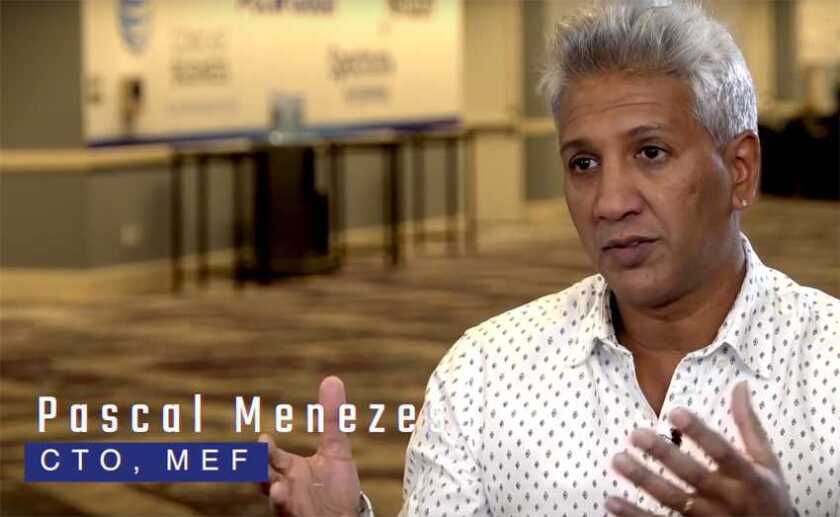The four companies are working with Clear, the same specialist that earlier this year ran successful tests of blockchain with PCCW Global and Colt for wholesale voice settlement.
The carriers are also working with Cataworx, a US company that operates in the wholesale connectivity market.
They plan to demonstrate their proof of concept (PoC) at MEF18, this year’s annual conference organised by MEF, the former Metro Ethernet Forum.
They will use two MEF lifecycle service orchestration (LSO) initiatives, Cantata and Sonata, which are inter-carrier interfaces for automation of bandwidth-on-demand product discovery, service eligibility verification and other services, including settlement.
MEF’s CTO, Pascal Menezes, said: “MEF18 proof of concept demonstrations, like this collaborative effort … are crucial to accelerating development and worldwide adoption of assured services, orchestrated across automated networks with MEF 3.0.” The organisation describes MEF 3.0 as “a transformational framework for defining, delivering and certifying agile, assured and orchestrated communication services across a global ecosystem of automated networks.”
The four carriers say they will use blockchain to demonstrate cloud and virtual reality (VR) as well as IoT at the Los Angeles MEF conference.
Clear CEO Gal Hochberg said: “With a growing demand for cutting-edge technologies such as cloud, VR or self-driving cars, telecom companies have an opportunity to unlock new revenue-generating opportunities by offering data on demand for fixed and mobile subscribers.”
He added: “The bandwidth-on-demand PoC is the first step towards a guaranteed and secured new internet layer enabling new connectivity for people and organisations wherever they are.”
The bandwidth-on-demand PoC is intended to demonstrate the power and viability of a synchronised and decentralised global supply chain for inter-carrier bandwidth-on-demand services. As a result, carriers can automatically discover, quote, deliver and settle multi-product, multi-party services, eliminating reliance on a centralised intermediating party.
In the PoC, customers will state their intent via the bot-based Cataworx community portal, said the companies involved. Off-net quotes are then exchanged across a MEF LSO Sonata interface reference point as product offerings are discovered across any number of carriers. Orders are encoded in smart contracts and services are automatically settled, including provisions for service level agreements (SLAs), using private and shared blockchain interactions.
Clear will provide the commercial solution, involving automated multiparty inter-carrier blockchain-based invoicing, payments, dispute resolution, SLA based remedies and settlement.
“Telecommunications carriers strive to automate the delivery of such services in order to reap the commercial benefits of measured and billable on-demand services that will yield additional revenues from existing infrastructure,” said PCCW Global’s head of new technology, Shahar Steiff.
“This PoC demonstrates that such services can be realised today, and highlights the need of the industry to converge towards a unified modelling and operational approach, which are the prerequisites for such automation across multiple operator domains.”
Tata Communications technology VP, Matthew Ma, said the MEF trial will be “a step forward in demonstrating the potential value that blockchain can deliver by improving the ways in which we interoperate in the context of next generation services and ultimately the end-user experience”.






